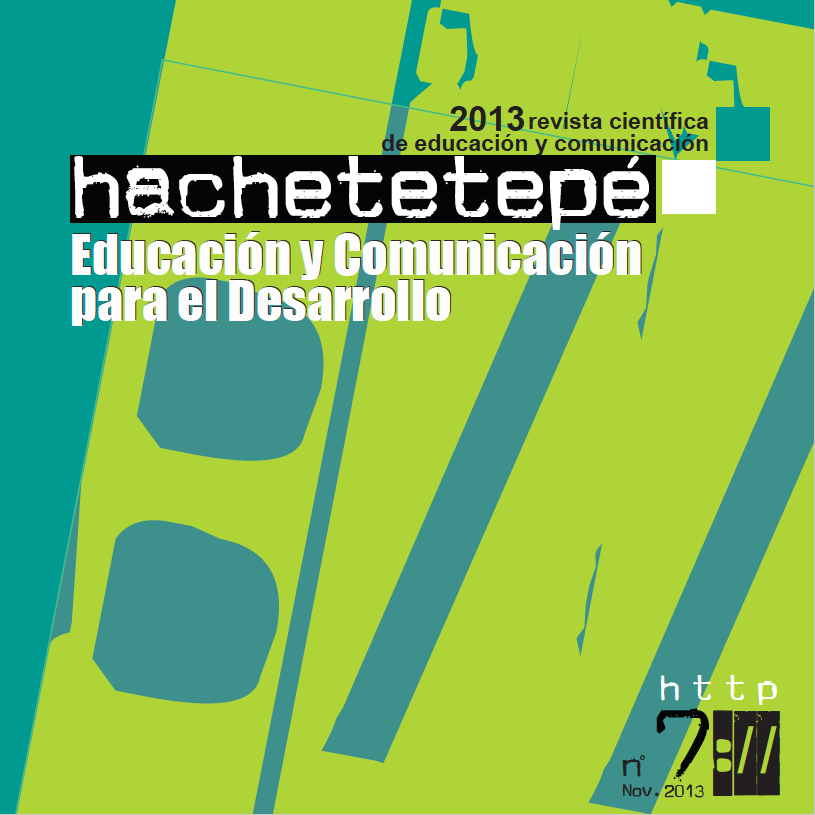Machuca; a Possible Utopia

Info
Abstract
In a polarized and violent society, children’s narratives and their friendships becomes a narrative of hope and of the possibilities of reaching equality within a society that is committed to the battle against poverty and social exclusion and to prove that this is not utopian. This premise is reflected through the story of Pedro and Gonzalo, the protagonists of the film Machuca, directed by the Chilean Andrés Wood who, thanks to his long career as a director and his ability to reflect the principal traits of Chilean society in his films, has been acclaimed both by the viewing public in his country and internationally. Machuca narrates a very important episode within Chilean history. Furthermore, it is a film that shows us how the friendship between the two protagonists can help to overcome social and political differences. This is viewed as something that comes about in a spontaneous manner within human nature: friendship.
Keywords
Downloads
How to Cite
License

This work is licensed under a Creative Commons Attribution-NonCommercial-NoDerivatives 4.0 International License.
Those authors who have published with this journal, accept the following terms:
- They will retain their copyright and guarantee the journal the right to first publication of their work, which will simultaneously be subject to the Creative Commons Attribution License . They may be copied, used, disseminated, transmitted and publicly displayed, provided that the authorship, url, and magazine are cited, and are not used for commercial purposes. No derivative works are allowed.
- They may adopt other non-exclusive license agreements for the distribution of the published version of the work (e.g., deposit it in an institutional telematic archive or publish it in a monographic volume) provided that the initial publication in this journal is indicated.
- Disseminate your work through the Internet (e.g., in institutional telematic archives or on your website) once the manuscript is accepted, which may lead to interesting exchanges and increased citations of the published work. (See The effect of open access).
Hachetetepé. Scientific journal of education and communication does not charge a fee for the submission of manuscripts or for the publication of its articles.
References
DIRAC, Catálogo Cine Chileno; Dirección de Asuntos Culturales, Ministerio de Relaciones Exteriores de Chile.
López, N. J., (1997) Películas chilenas, Santiago Eds. Rumbo.
Machuca Ahumada, A (2012): La Virtualidad Educativa del Cine y el Programa La Escuela al Cine,
Tesis Doctoral. Universidad Complutense de Madrid. En línea en: http://eprints.ucm.es/16707/
Muñoz, E.; Burotto, D. (1998) Filmografía del cine chileno, Santiago, Eds. Museo Arte Contemporáneo.
Webgrafía
El Desquite, En línea en: http://es.cinechile.wikia.com/wiki/El_desquite (Consultada el 05 de julio de 2013).
García, José Manuel (2009): “Aula Tus ojos: Cine y educación para el desarrollo. Cómo participar del cine como configurador social en El audiovisual y la educación para el desarrollo”; 47-60. En línea en: http://biblioteca.hegoa.ehu.es/system/ebooks/17713/original/El_audiovisual_y_la_educaci__n_para_el_desarrollo.pdf (Consultada el 20 de junio de 2013).
La fiebre del loco, En línea en: http://es.cinechile.wikia.com/wiki/La_fiebre_del_loco (Consultada el 05 de julio de 2013).
La Unidad Popular, En línea en: http://www.icarito.cl/enciclopedia (Consultada el 16 de junio de 2013).
La Unidad Popular, En línea en: www.memoriachilena.cl (Consultada el 16 de junio de 2013)
Machuca, En línea en: http://cinetecadigital.ccplm.cl/ (Consultada el 05 de julio de 2013).
Machuca, En línea en: http://www.madrimasd.org/blogs/imagen_cine_comunicacion_audiovisual/2013/01/13/126145 (Consultada el 05 de julio de 2013).
Wood, Andrés; En línea en: http://www.cinechile.cl/persona-487 (Consultada el 05 de julio de 2013).

